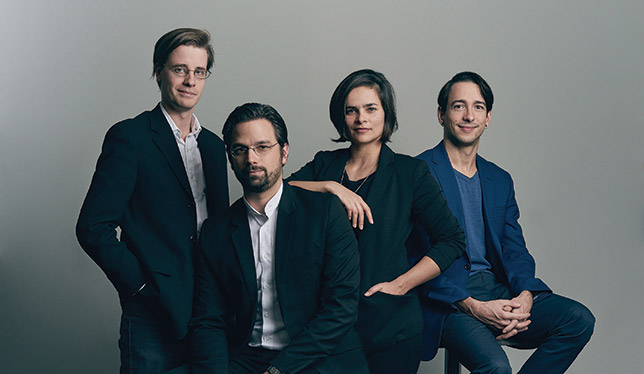What do daycare centres in Quebec have in common with a non-profit organization that cleans up graffiti and replaces it with art murals? Both are rooted in social innovation, at different scales, and both represent the type of change that Saint Paul University’s new Élisabeth-Bruyère School of Social Innovation wants to inspire.
By developing five different degree programs and creating a collaborative workspace, Saint Paul is thinking big about social innovation. Political science professor Simon Tremblay-Pepin, the school’s director, is optimistic that with the renovations currently under way at the university, the collaborative space will be ready by the time the first students start their courses in September.

A term that has been trending for some time, “social innovation” in fact refers to a specific approach to problem-solving. “When communities are grappling with problems and decide to solve them themselves, without directly appealing to the government or the private sector, that’s social innovation,” explains Dr. Tremblay-Pepin.
Recognizing that trends can change quickly, the director fully intends to seize this opportunity for social innovation. “If it makes it possible to create schools and departments, to set up programs, that’s fantastic, we’ll take it,” he says. “We need to set up structures that allow us to fund and organize these initiatives so that they stick around for the long term, way beyond the trend stage.”
Besides being timely, according to Dr. Tremblay-Pepin, the school also meets a need for training in this emerging discipline. The curriculum aims to help students build their capacity to better understand a problem at hand, and to give them the necessary tools to solve it. “We are seeing that universities aren’t offering training that includes not only critical thinking, which is more an issue for the humanities, but also the solution side of things, which is more connected to the democratic management of a community organization.”
In addition to being the first university to include these new degree programs, Saint Paul plans to use an innovative training format. “Instead of teaching five courses per semester, we will recommend that each course be condensed … and that students take an entire course in three weeks. That would let the instructor get students out of the classroom and into the field.”